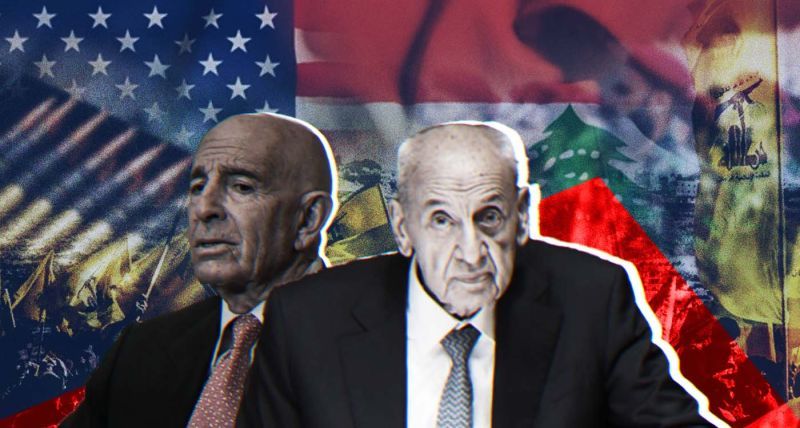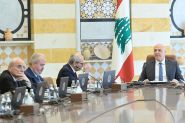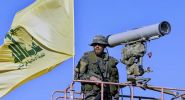
Without ceremony or pomp, Speaker of Parliament Nabih Berri buried the American proposal brought to Lebanon by envoy Tom Barrack, a plan already endorsed by the Lebanese government.
In a televised address marking the 47th anniversary of Imam Musa al-Sadr’s disappearance with his two companions, Berri declared, “We are open to discussing the fate of the weapons within the framework of consensual dialogue,” stressing that “it is nationally unacceptable to place a ball of fire in the army’s court.”
In effect, Berri’s stance signals a return to square one and the familiar rhetoric of dialogue—a path that has never produced results—particularly as Hezbollah leaders continue to repeat the slogan “we will not hand over our weapons.” On the eve of the cabinet session dedicated to discussing the army’s plan to centralize control of arms, Berri’s warning about a “ball of fire” suggested that potential clashes may occur should the government press ahead with the plan.
Before his address, Berri summarized the outcome of US envoy Tom Barrack’s fifth visit to Lebanon, saying, “The Americans returned with the opposite of what they had promised. They insist on the withdrawal of Hezbollah’s weapons before any reciprocal Israeli steps could be taken. They offered nothing beyond previous Israeli commitments. The situation is deteriorating, heading toward renewed escalation. Every issue now sparks a contentious dispute.”
According to Berri’s circles, Lebanon had expected a positive stance from Israel on the step-by-step policy championed by Barrack. However, Senator Lindsey Graham’s statement that “Israel will not withdraw from southern Lebanon before Hezbollah’s weapons are dismantled” dampened expectations.
In response to Berri’s claim that Barrack offered no new initiatives, US sources indicated that “Israel welcomed the government’s decision to monopolize arms and is awaiting practical steps.” They are closely watching the cabinet session on the September 5 to discuss the army’s plan, which is expected to be decisive.
According to sources, the Lebanese Army is taking a pragmatic approach, and implementation is expected to proceed smoothly under political cover, as the army refuses to use force. The process will involve political coordination, and the agenda will remain flexible, adapting to circumstances.
Meanwhile, Hezbollah is setting conditions for handing over its weapons, including: Israel’s withdrawal from Lebanon and the Shebaa Farms, an end to Israeli attacks, the return of prisoners, Israel’s commitment to the ceasefire and armistice agreements, securing the border areas with Syria to prevent ISIS infiltration and guarantees that members of the “Resistance” will not be prosecuted either in Lebanon or in Syria.
While Hezbollah is going through an existential phase and believes it must maintain its weapons as a deterrent, sources close to the Lebanese Forces (LF) believe the party’s conditions are a pretext to retain its arsenal, at least for now, driven by Iran’s need for pressure cards on the nuclear file.
Meanwhile, an Arab official says Hezbollah’s weapons are of Iranian origin, and the party cannot act on them without Tehran’s directive. Cornered internationally, regionally and domestically, Iran is using its proxies as leverage, particularly Hezbollah, Iraq’s Popular Mobilization Forces and the Houthis in Yemen. A former official recalls that Hezbollah had “walked away” from National Dialogue in Baabda in 2012, after President Michel Sleiman presented a national defense strategy for discussion.
The key question today is whether Iran is willing to use Hezbollah’s weapons as leverage in nuclear negotiations, and whether Washington is prepared to negotiate Hezbollah’s arsenal with Tehran. An Arab official says there is no negotiation or dialogue over weapons. Armed groups, particularly Hezbollah, are expected to comply with the government’s decision, which is final.




Comments